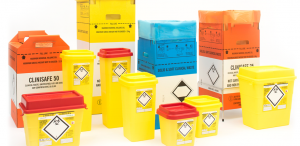Last Updated on June 7, 2024 by Asfa Rasheed
The healthcare waste sector is one that is continually developing and changing. And with the advent of new technology, it’s only going to continue to change at a rapid pace.
One of the most important aspects of healthcare is care management. And with the help of technology, care management is transforming the healthcare industry for the better.
In this blog post, we will explore how technology is transforming healthcare care management. From patient portals to data analytics and more.
Continue Reading To Find Out How Technology Is Altering How We Take Care Of Our Health
The Current State Of Healthcare Care Management
The current state of healthcare management is one that is rapidly changing and evolving. Technology is playing a big role in transforming the industry, with new tools and solutions being developed all the time.
This is making it easier for care managers to track and manage patient health data, as well as to communicate with other members of the care team.
One of the biggest changes that technology has brought about is the way in which care managers can now access patient health data. In the past, this information was often siloed within different departments and systems.
However, now there are a number of platforms and solutions that allow care managers to centralise all this data in one place. This makes it much easier to track progress and identify any potential problems.
Another area where technology is having a big impact is in the way care managers communicate with other members of the care team. In the past, communication was often hampered by poor connectivity and a lack of standardization.
However, now there are a number of platforms that allow care managers to easily connect with other members of the team, regardless of location. This has made it much easier to coordinate care and share information between different parts of the organization.
Overall, technology is transforming the healthcare industry in a number of ways. It is making it easier for care managers to track patient health data and communicate with other members of the team. This is leading to better coordination of care and improved outcomes for patients.
The Challenges Of Healthcare Care Management
The challenges of healthcare waste management are many and varied. They include the need to provide quality care at a reasonable cost, the need to coordinate care among multiple providers, and the need to manage chronic conditions.
In addition, there is a growing demand for transparency in healthcare costs, as well as a desire by patients for more control over their own health care.
Technology is playing an increasingly important role in helping to address these challenges. For example, electronic health records (EHRs) can help to improve coordination of care by providing a complete picture of a patient’s medical history.
In addition, EHRs can help to reduce costs by reducing duplicate tests and procedures. Patient portals are another example of how technology is transforming healthcare care management.
Patient portals give patients 24/7 access to their medical information and allow them to communicate directly with their providers. This provides patients with greater transparency and control over their own healthcare.
Finally, telemedicine is also playing a role in transforming healthcare care management. Telemedicine allows providers to consult with patients via video conferencing, which can improve access to care for rural and underserved populations.
In addition, telemedicine can help to improve coordination of care by allowing specialists to consult with primary care physicians in real-time.
How Technology Is Transforming Healthcare Care Management
Technology is transforming healthcare care management in a number of ways. First, it allows for more efficient and effective coordination of care.
In the past, care coordination was often a manual process, involving faxes and phone calls between providers.
Now, there are a number of software platforms that allow for the easy sharing of information between providers, including medical records, lab results, and prescription information.
This makes it easier for providers to coordinate care and ensures that patients receive the most appropriate care for their needs. Second, technology is also transforming how providers deliver care. In the past, most health care was delivered in-person, in a doctor’s office or hospital.
However, with the advent of telemedicine, more and more care is being delivered remotely. This allows patients to receive care from their homes or wherever they may be located.
It also allows providers to reach a wider range of patients, including those who live in rural areas or who have difficulty accessing traditional healthcare facilities.
Third, technology is changing how we pay for healthcare. In the past, most healthcares was pay for through private insurance companies.
However, with the rise of government-sponsored programs like Medicare and Medicaid, as well as the Affordable Care Act (ACA), more and more people are receiving coverage through these public programs.
This is resulting in a shift in how healthcare dollars are and collect – from private insurance companies to public entities.
The Future Of Healthcare Care Management
Healthcare is evolving. Consumer demands and expectations are changing, and technology is playing a major role in transforming the industry.
Today’s consumers are use to having access to information and services at their fingertips and fingertips within easy reach. They want to be able to manage their health and wellness on their own terms, without having to rely on traditional healthcare providers.
This is where healthcare care management comes in. Healthcare care management is a process that uses technology to help patients take control of their health by providing them with tools and resources to make informed decisions about their care.
Healthcare care management programs are design to engage patients in their own health and help them navigate the complex healthcare system. These programs use data analytics to identify gaps in care and target interventions to improve outcomes.
Technology is essential to successful healthcare care management. By leveraging data and analytics, healthcare providers can more effectively identify opportunities for improvement and target interventions accordingly. In addition, technology can help streamline processes and improve communication between patients and providers.
The future of healthcare care management is bright. Technology is transforming the industry, making it possible for patients to take control of their health and receive the best possible care.
The Consequences Of Improperly Handling Infectious Waste

Safe management of healthcare waste that is not properly disposed of can have disastrous consequences. Improperly handled infectious waste can lead to the spread of disease, contaminate food and water supplies, and cause environmental damage.
The World Health Organization (WHO) estimates that improper disposal of medical waste contributes to the spread of disease.
This can be do by buying in bulk or choosing items that have less packaging. By doing this, you will not only save money, but you will also help the environment
So why isn’t everyone recycling? It isn’t always as simple as it ought to be, though. Many people don’t have access to recycling facilities, and others find it difficult or inconvenient to recycle.
Sharps waste disposal that is not properly disposed of can end up in the hands of people who are not trained to handle it safely. This can lead to the spread of serious diseases like HIV/AIDS, hepatitis, and tuberculosis.

In addition to spreading disease, improperly disposed of infectious waste can also contaminate food and water supplies. Infectious waste that is not properly contain can leach into groundwater and contaminate drinking water supplies.
Infectious waste can also up in landfills where it can contaminate soil and eventually make its way into the food supply.
Medical waste that is incinerate without proper pollution controls can release harmful pollutants into the air. Infectious waste that is dump into waterways can contaminate them and harm aquatic life.
When Waste Management Companies are accountable, they are more likely to follow regulations and best practices regarding the transportation and disposal of infectious waste.
Conclusion
Technology has always be a huge part of healthcare; from the x-ray machines that help doctors diagnose patients to the electronic medical records that keep track of patient history.
But technology is changing healthcare in even more ways, from how care is deliver to how it’s pai for. With so many changes happening, it’s hard to keep up with all of them.
But understanding how technology is transforming biological waste can help you make better decisions about your own care.

